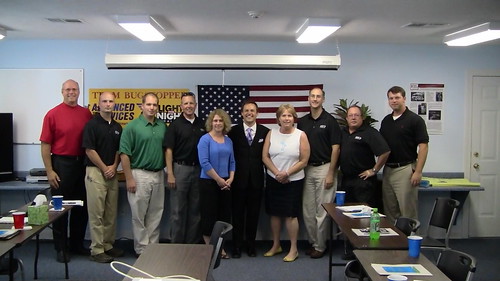 In any situation involving relationships, we are in pursuit of security. Security is neither positive nor negative. If we are comfortable with conflict, we will be secure in situations that are contentious and chaotic. If we operate well when our surroundings are calm, we will be secure in an environment that is calm and peaceful.
In any situation involving relationships, we are in pursuit of security. Security is neither positive nor negative. If we are comfortable with conflict, we will be secure in situations that are contentious and chaotic. If we operate well when our surroundings are calm, we will be secure in an environment that is calm and peaceful.
An outside observer may see someone in a violent situation and not understand why the person doesn’t simply leave. However, the person in the violent situation is familiar with these surroundings and has learned to adapt to them. As a result of this adaptation, he survives in this environment while any other situation is unfathomable and unrealistic. He simply accepts the fact his life is violent. By his own definition, he may seek out relationships where he will find conflict. Unless he directly confronts this belief system, he will continue to find security in violence.
The good news is he can shift his security. It is entirely possible for him to realize he doesn’t have to accept the violence as his reality. If he experiences enough discomfort, or sees a more attractive lifestyle, he can find the motivation to change his belief systems and his life.
In the media, we hear stories about people who have gone down a path of crime and self-destruction. We describe them as “victims of their environment”.
Although it is undeniable many people in our society are born with some severe disadvantages, to describe them as victims would not be completely accurate.
Your family background plays a major role in these scenarios. Your earliest definitions about life are formed at home. For some, these definitions are very positive. These individuals learn and understand the positive expressions of love, which form a solid foundation for them to build on for the rest of their lives. Their ability to make decisions from a stable and secure mind-set is evident. However, for many others, there are usually some flawed perceptions that develop from dysfunctional family situations.
• The word family connotes relationships to which we are indelibly bound.
• Being related provides the opportunity to have a strong connection but doesn’t guarantee this connection.
• A dysfunctional family is one in which abuse, neglect, closed- mindedness, and absence of affection are characteristics which create the atmosphere at home.
Here are some simple things you can do to determine how your definition of family affects your life today:
1. Write a brief (two or three sentences) description of an ideal family. Focus on the emotional characteristics.
2. Compare this description to the environment in which you grew up; again focus on the emotional characteristics.
3. Write down three positive characteristics you developed as a result of growing up in this environment.
4. Write down three negative characteristics you have used to justify any negative patterns in your life.
You were not in control of the environment you were born into. However, you do possess the ability to alter the direction of your life today. Your awareness is a major key to taking control of the direction of your happiness. Although you may have been victimized in the past, you don’t have to remain in that state today.



 “A compliment is verbal sunshine.” ~Robert Orben
“A compliment is verbal sunshine.” ~Robert Orben



